
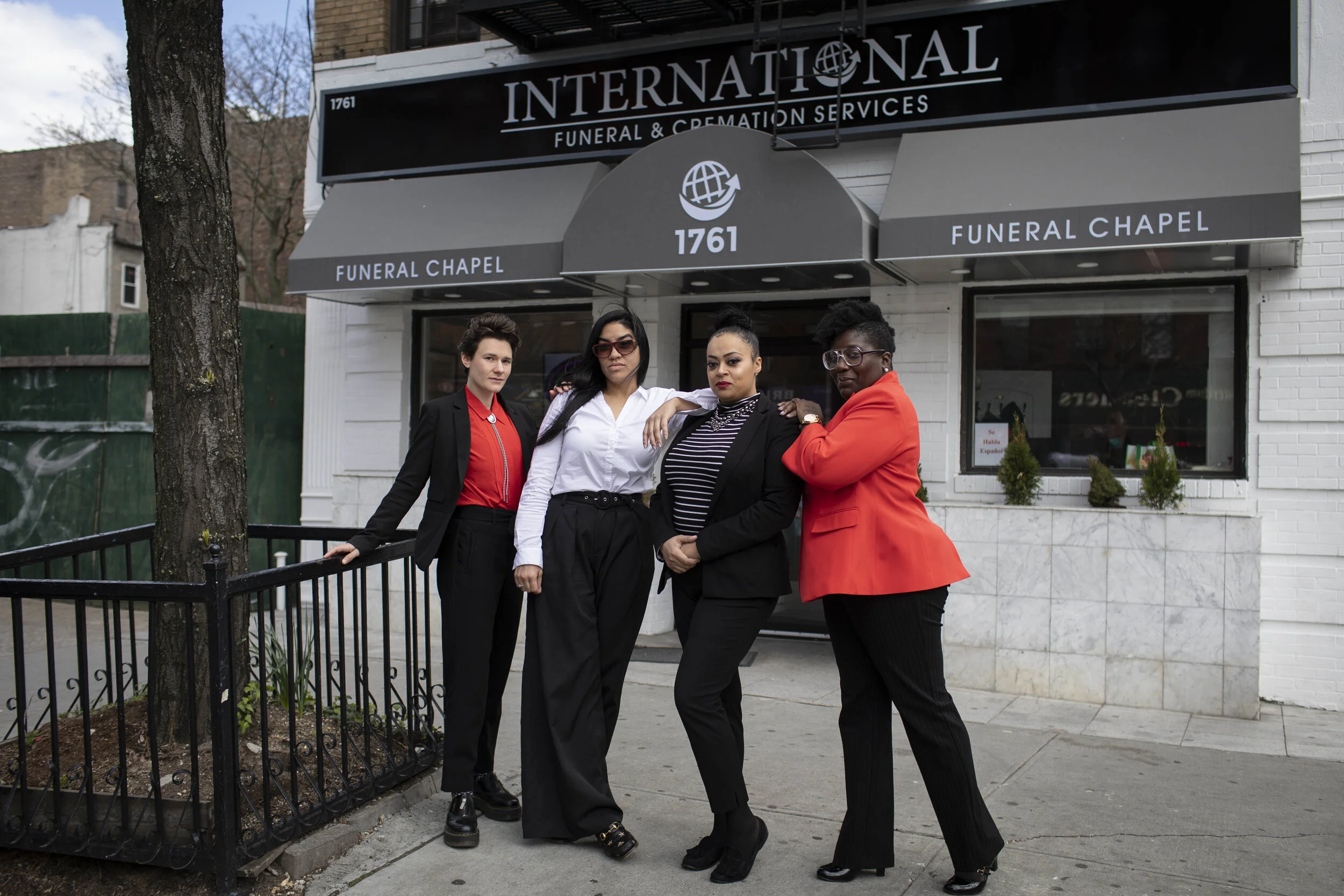
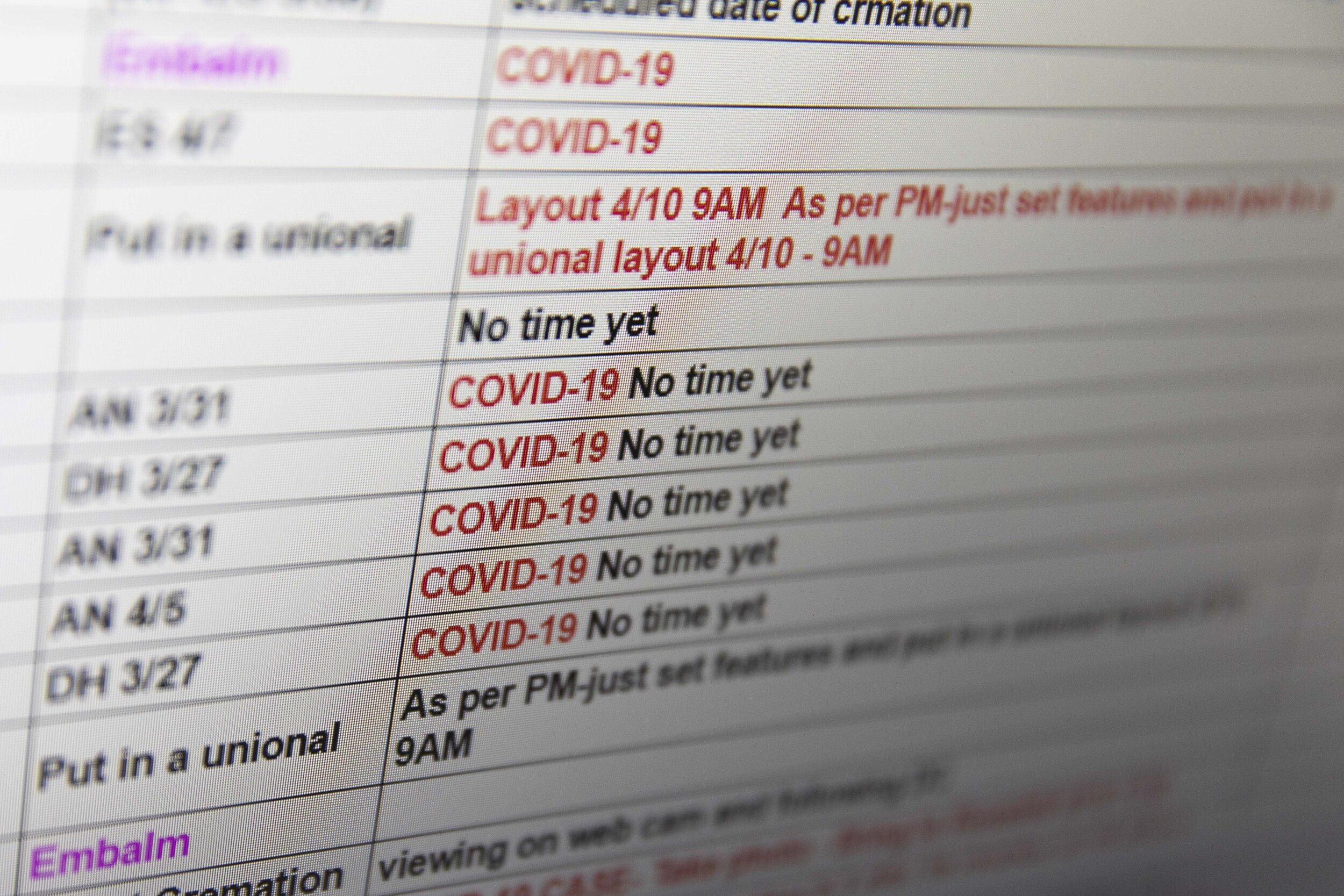
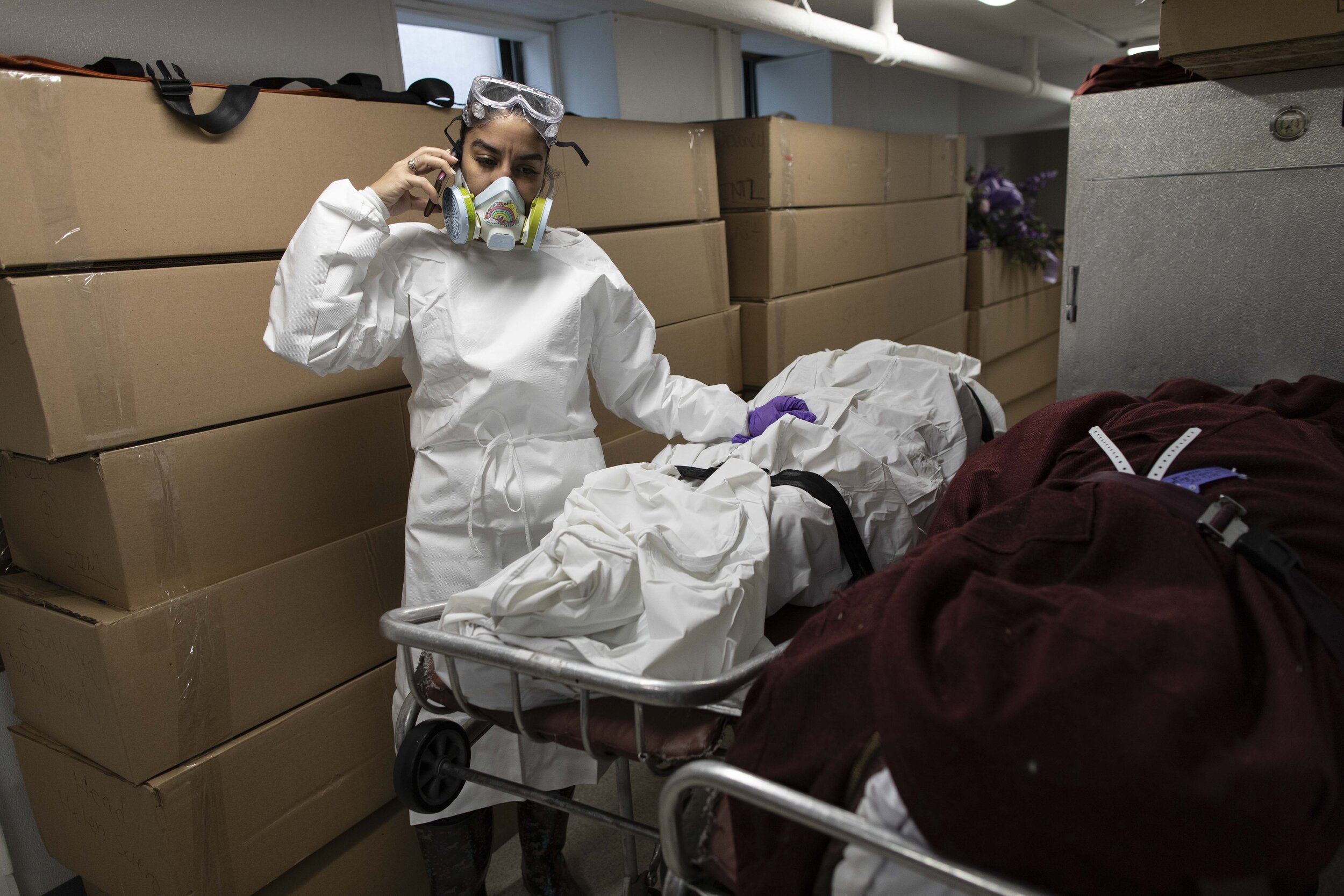
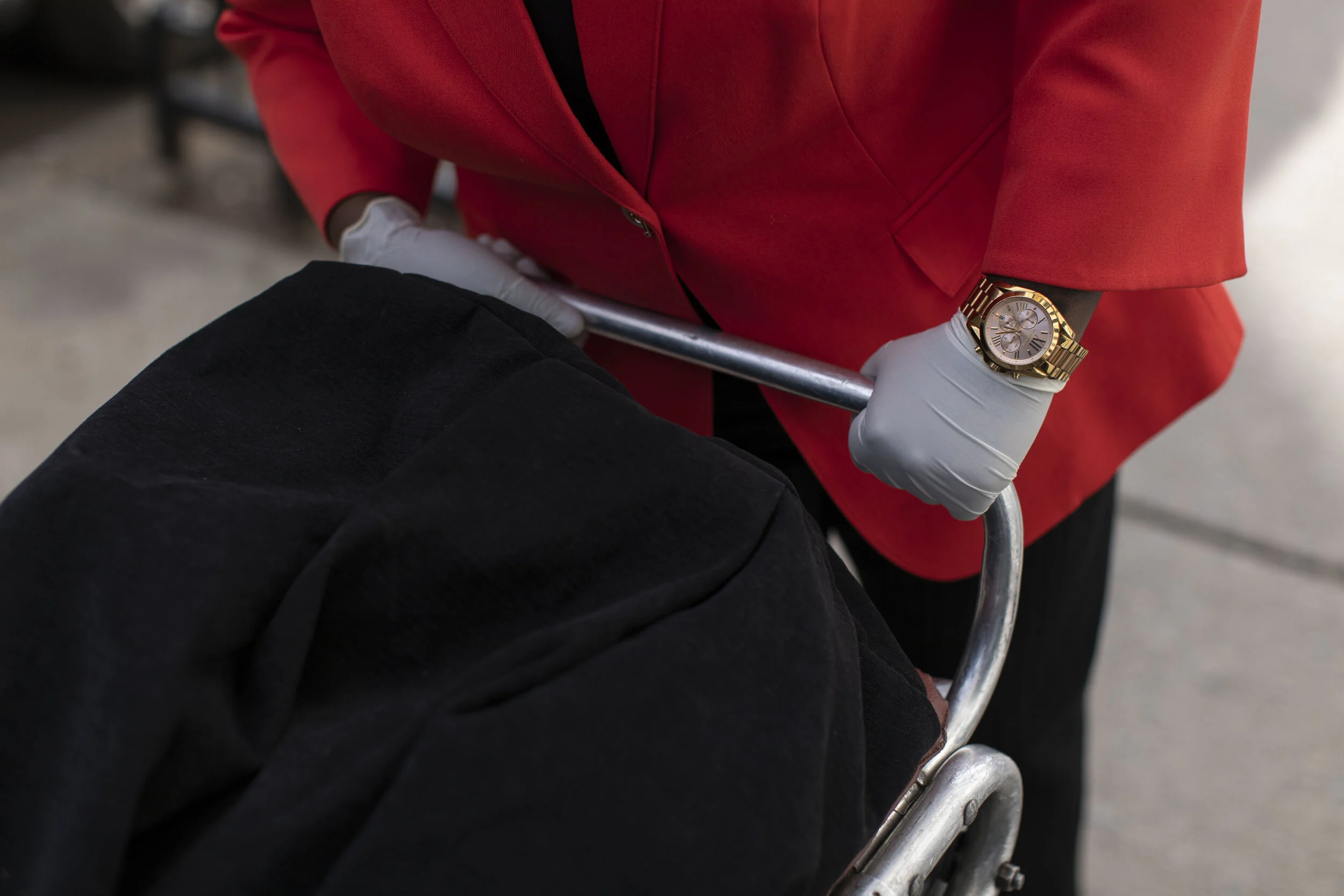

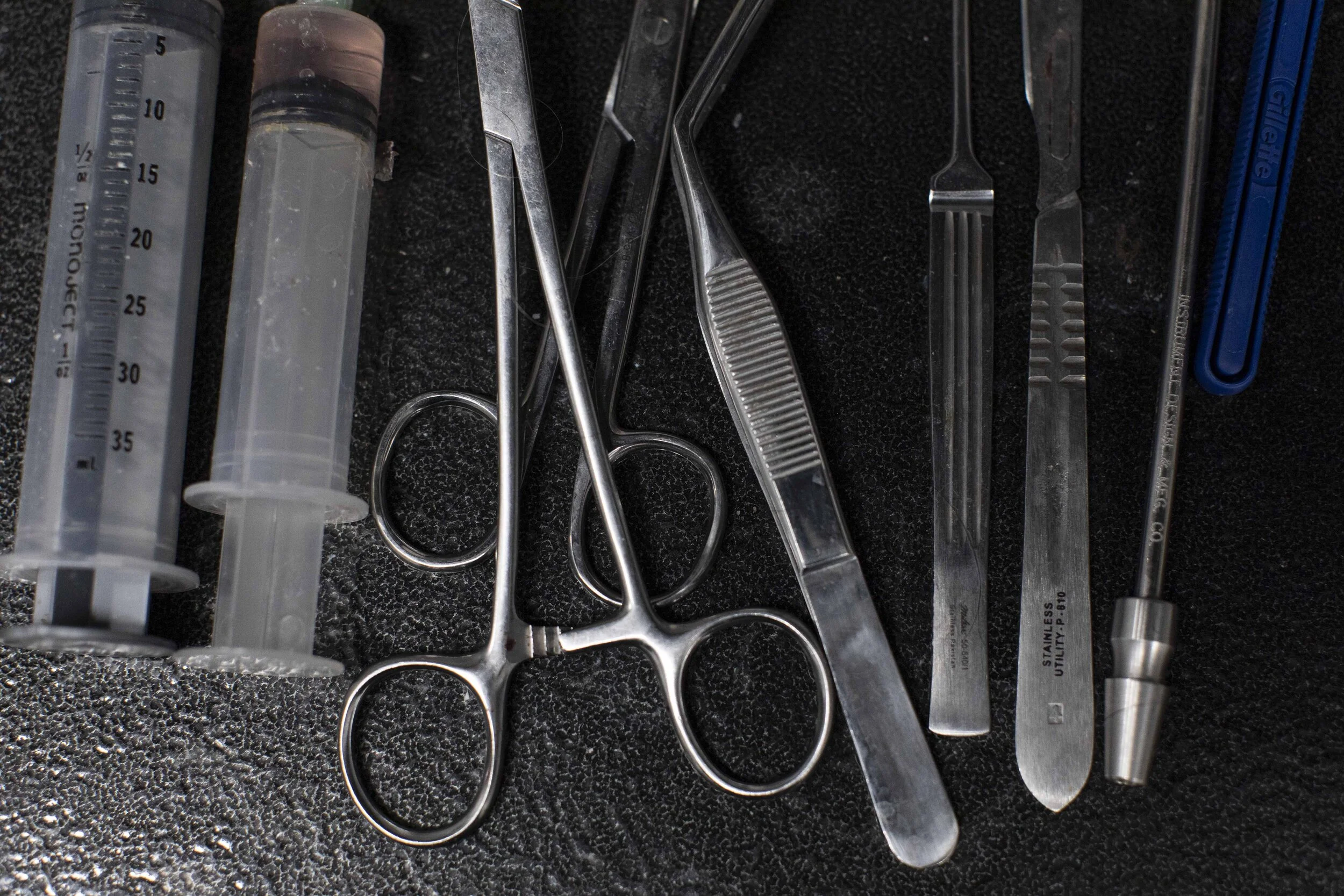
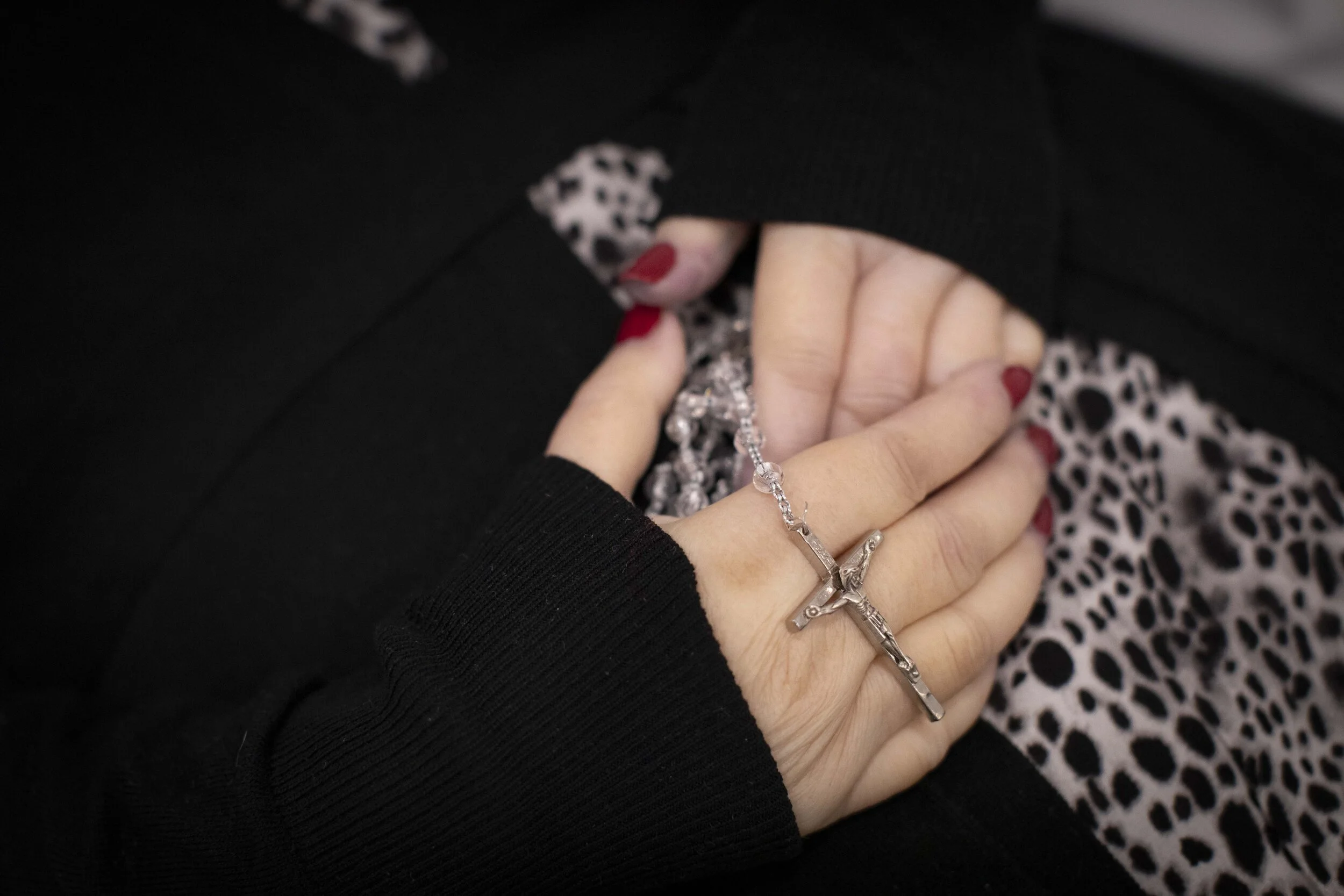
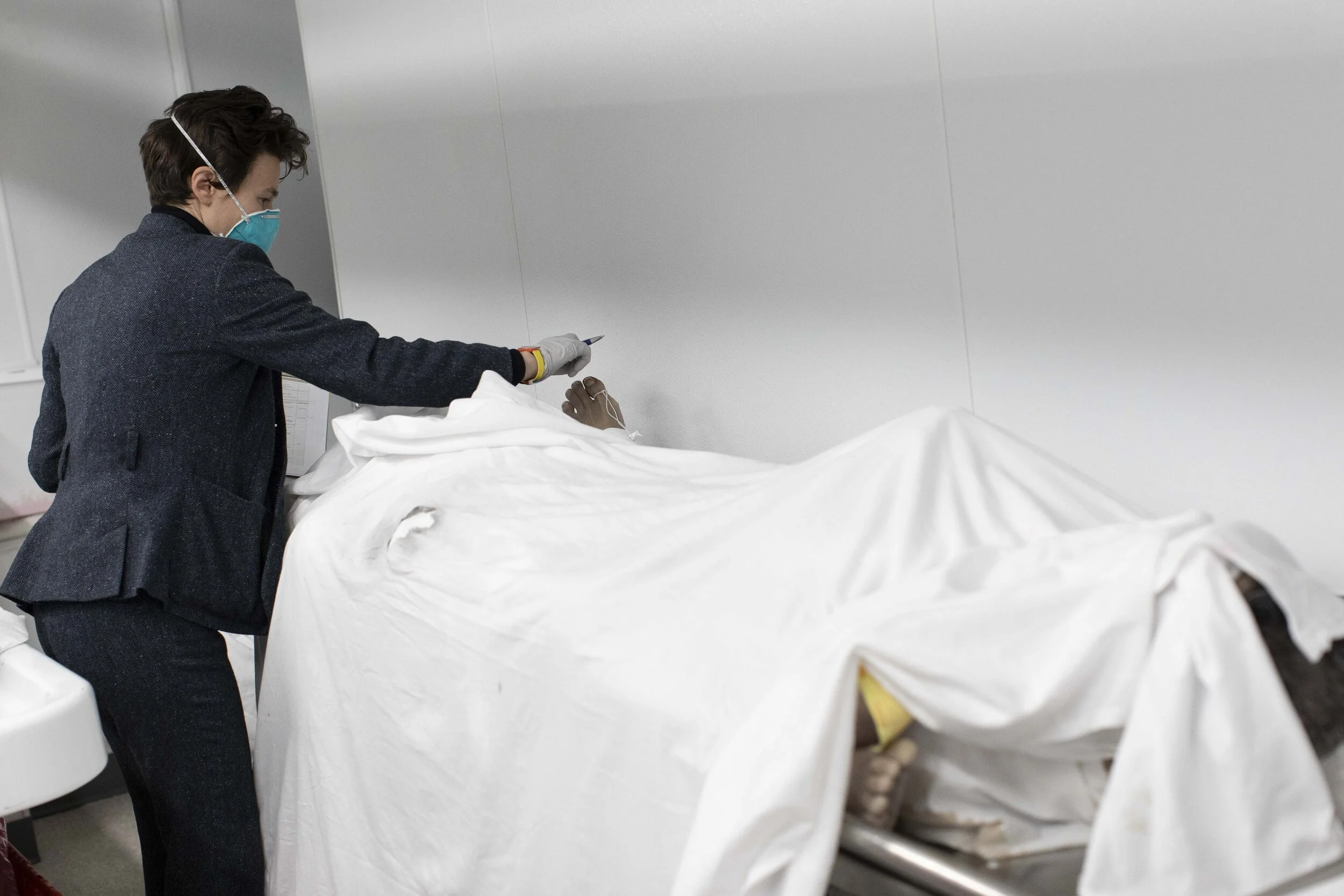
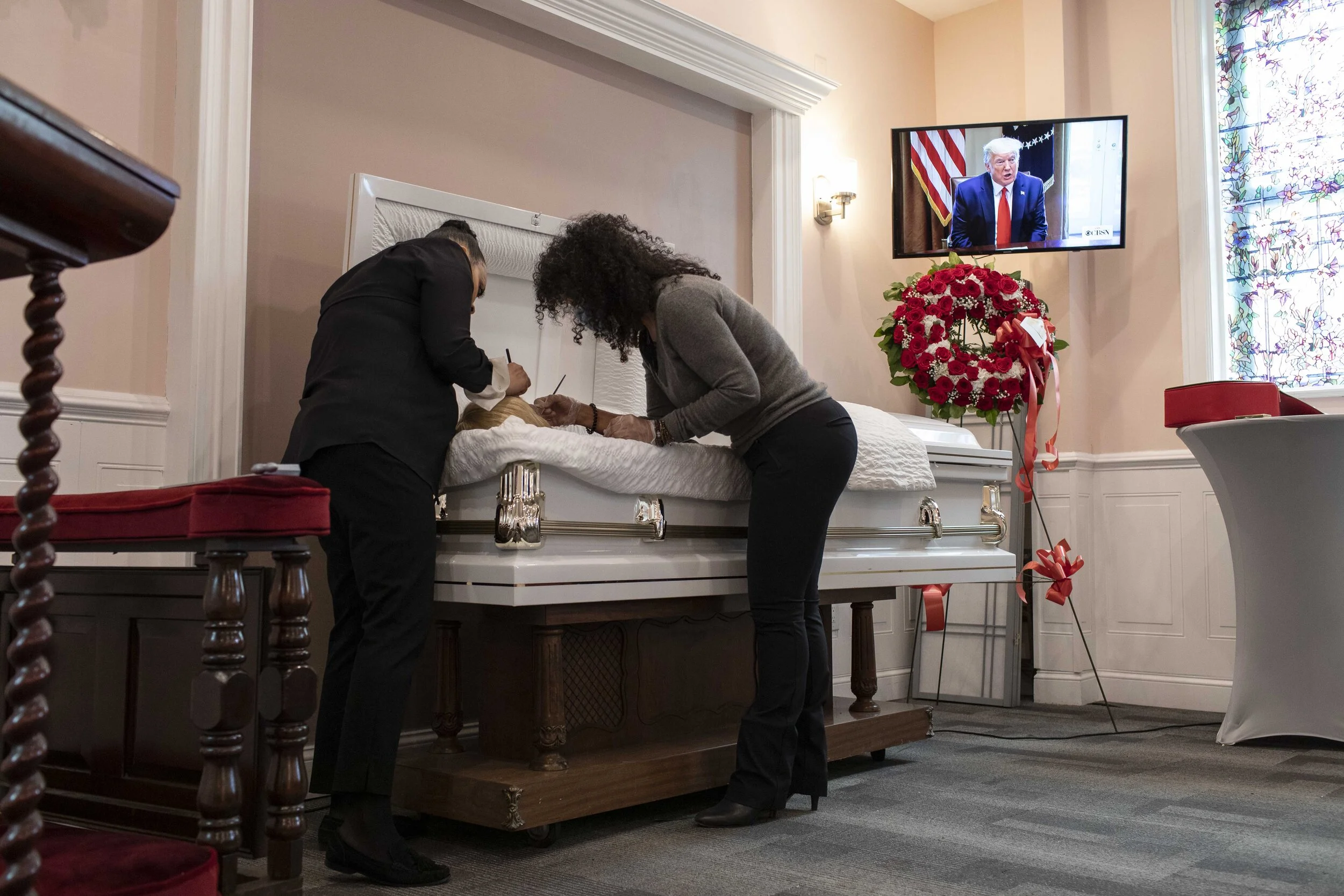

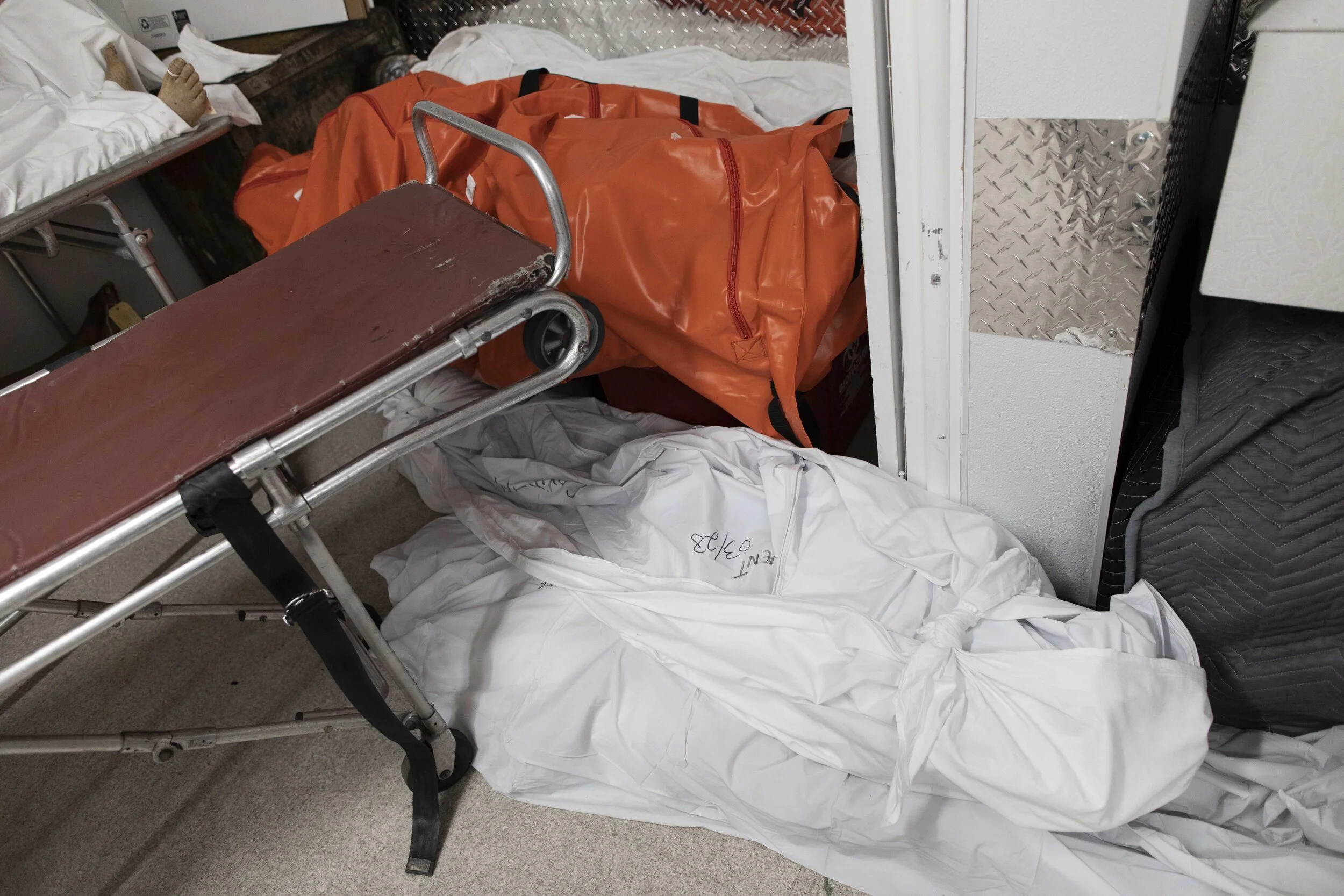
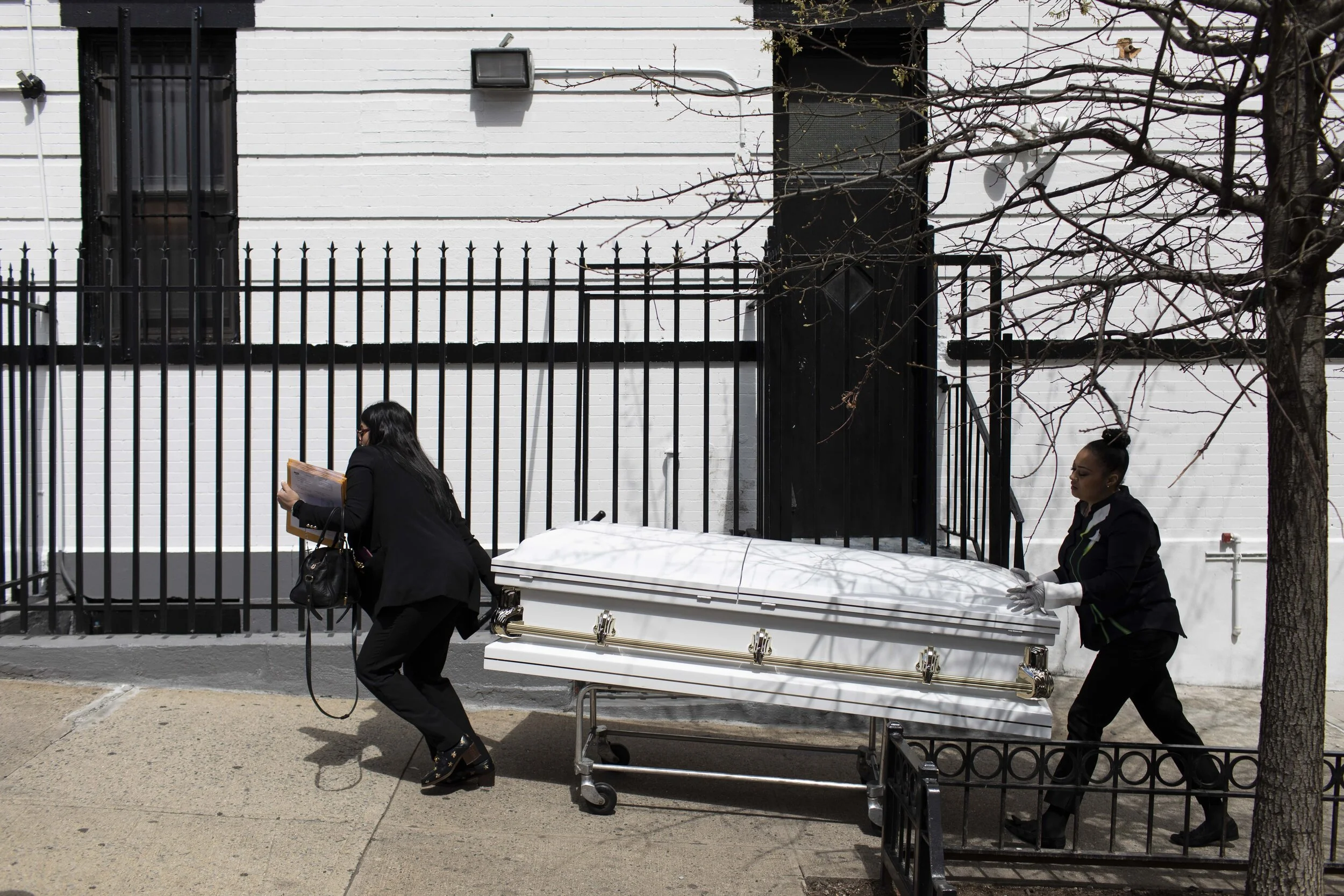
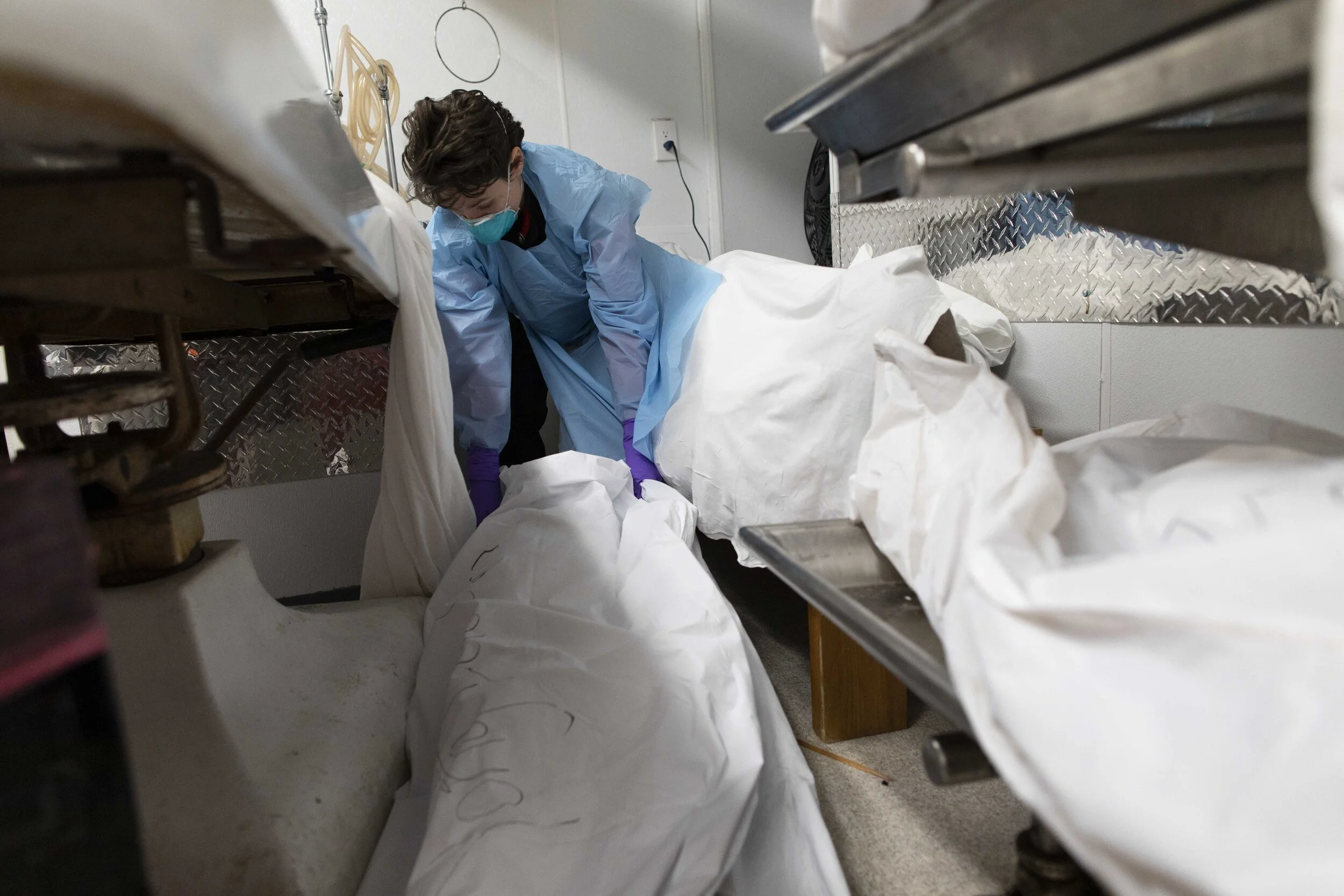
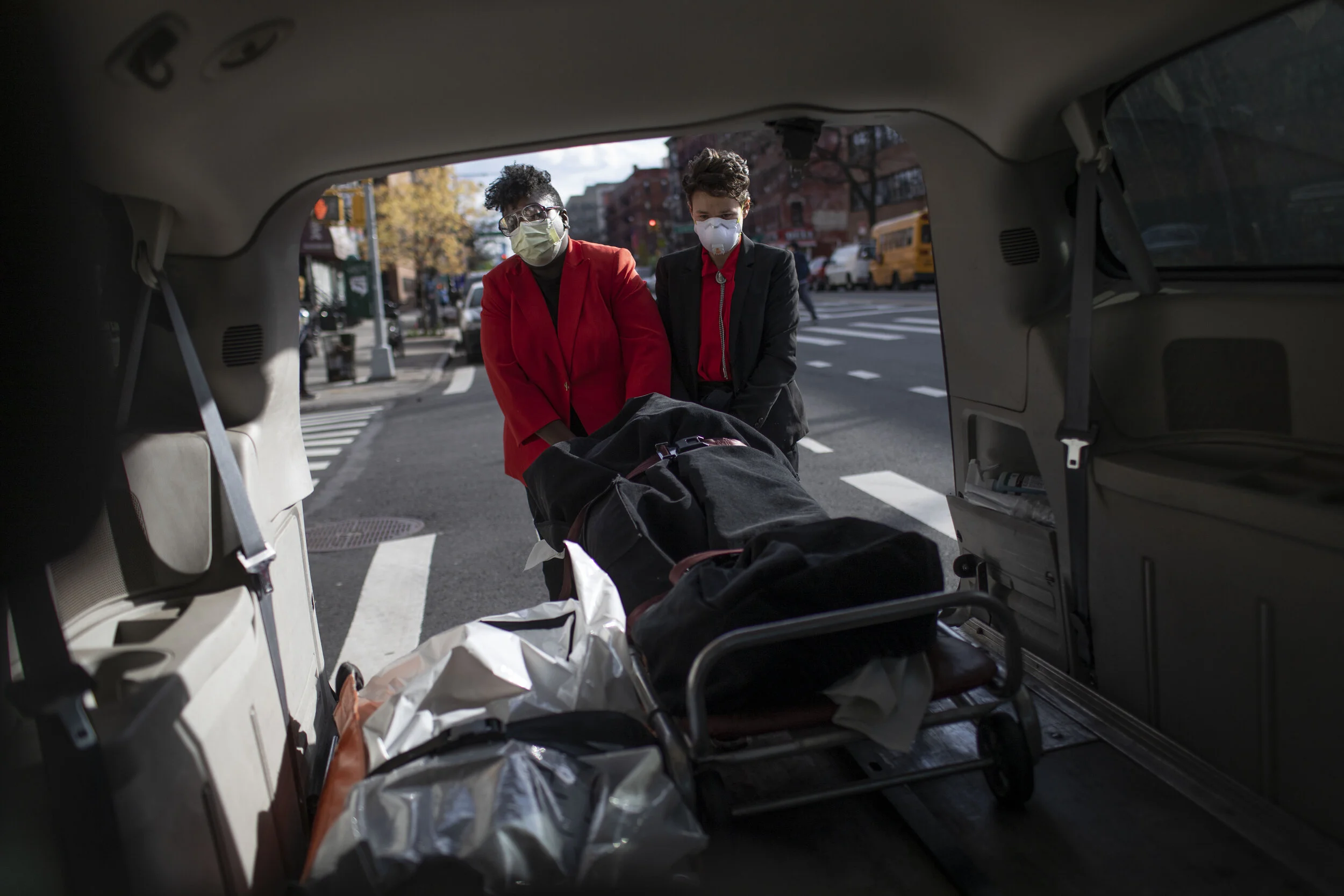
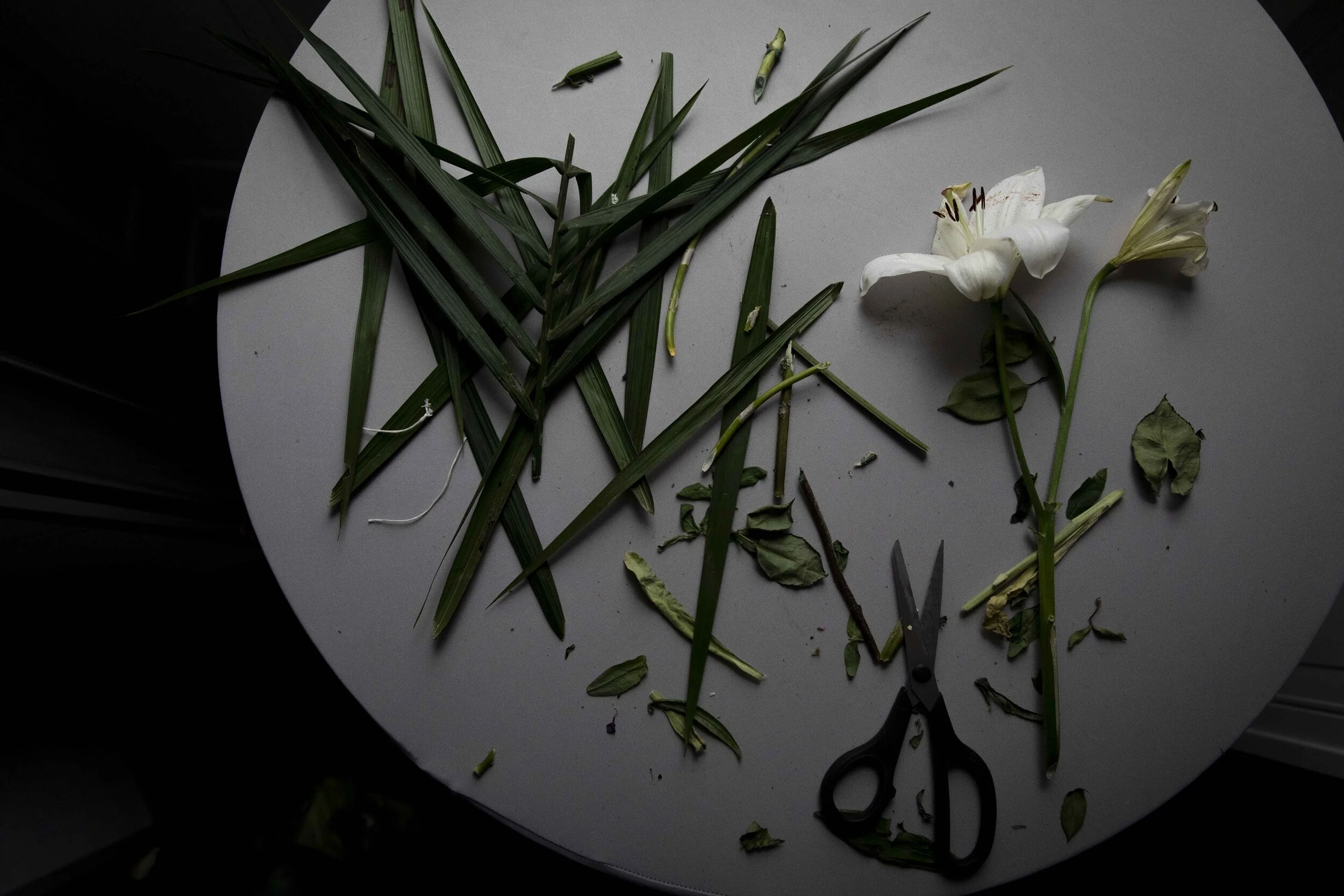
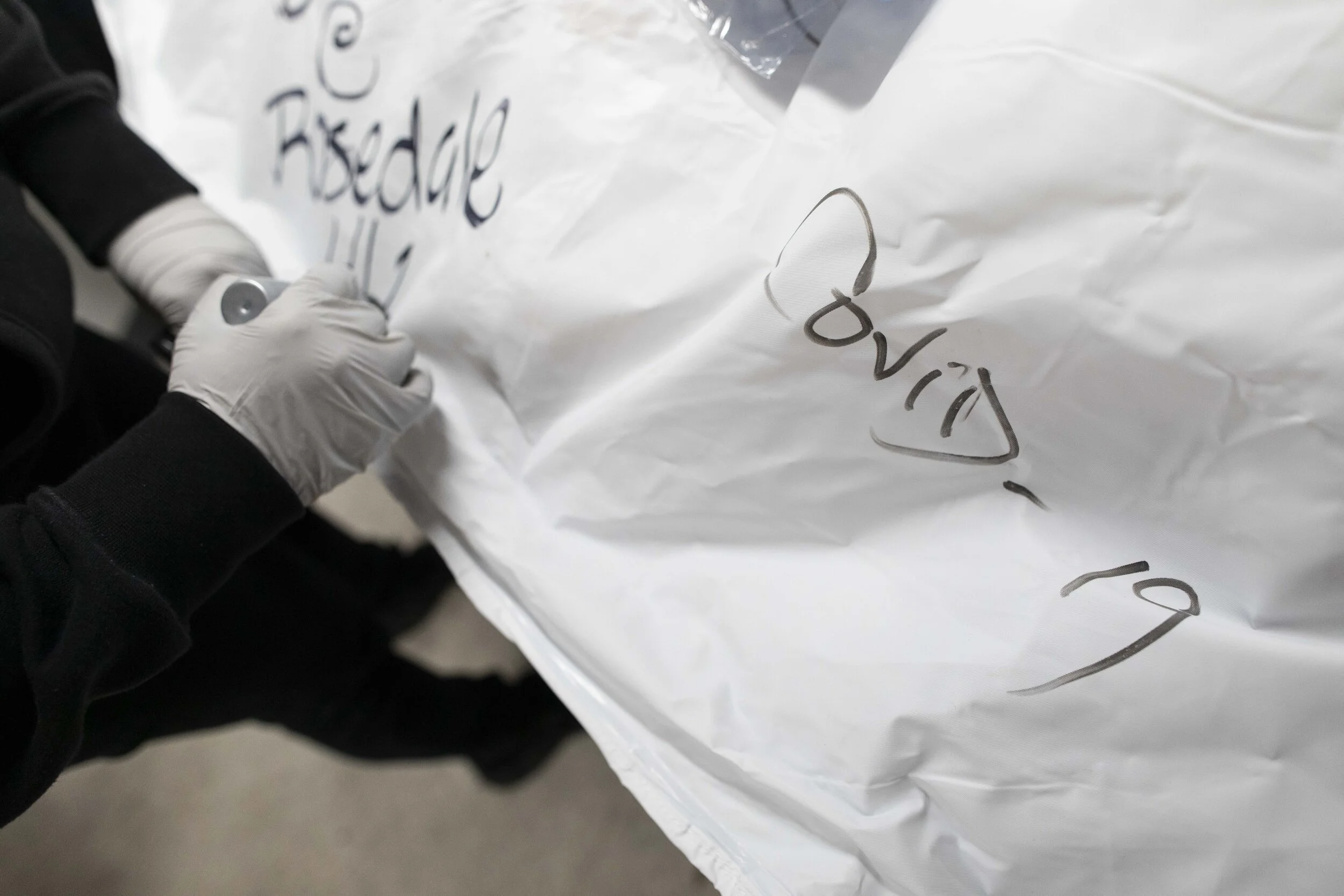
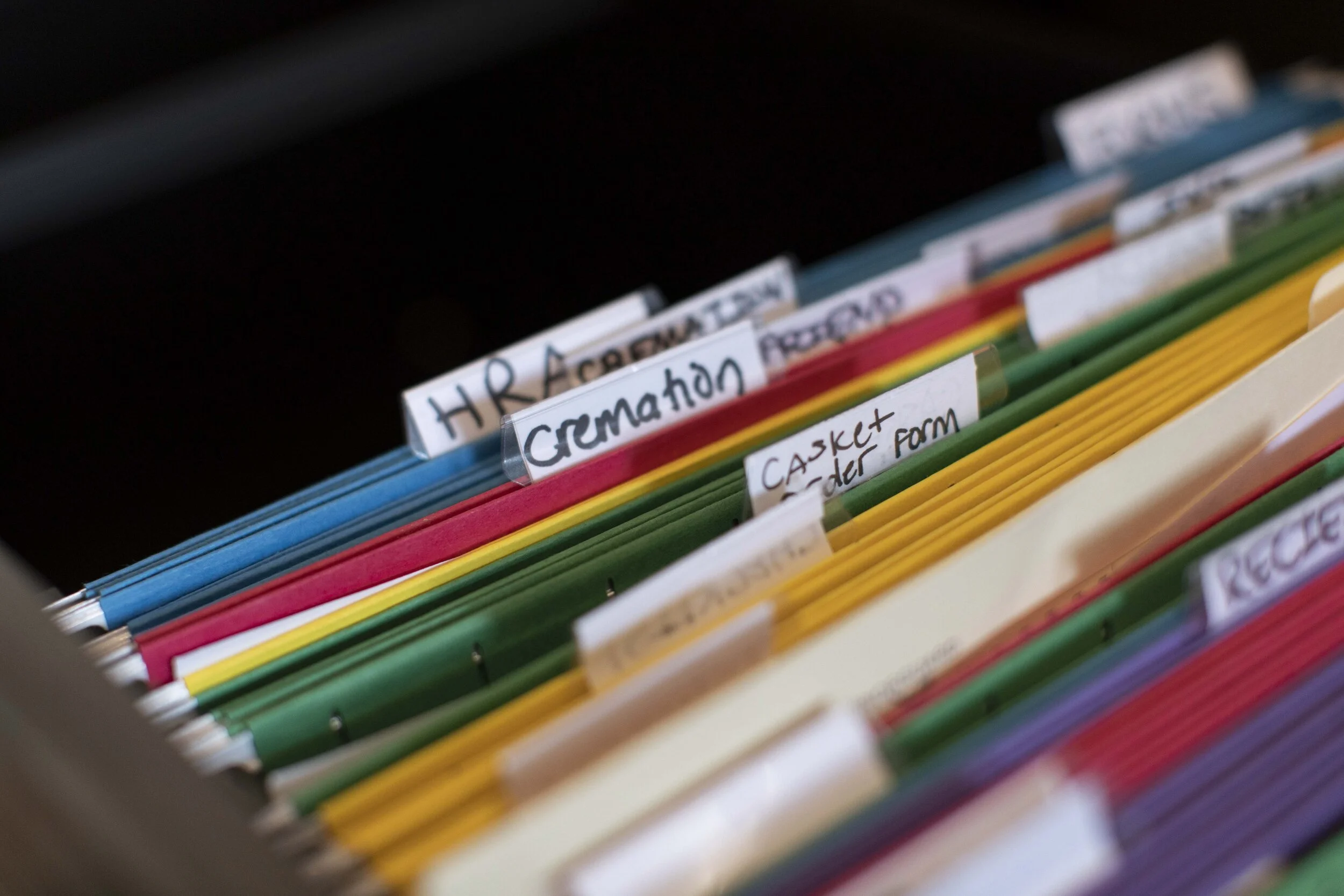
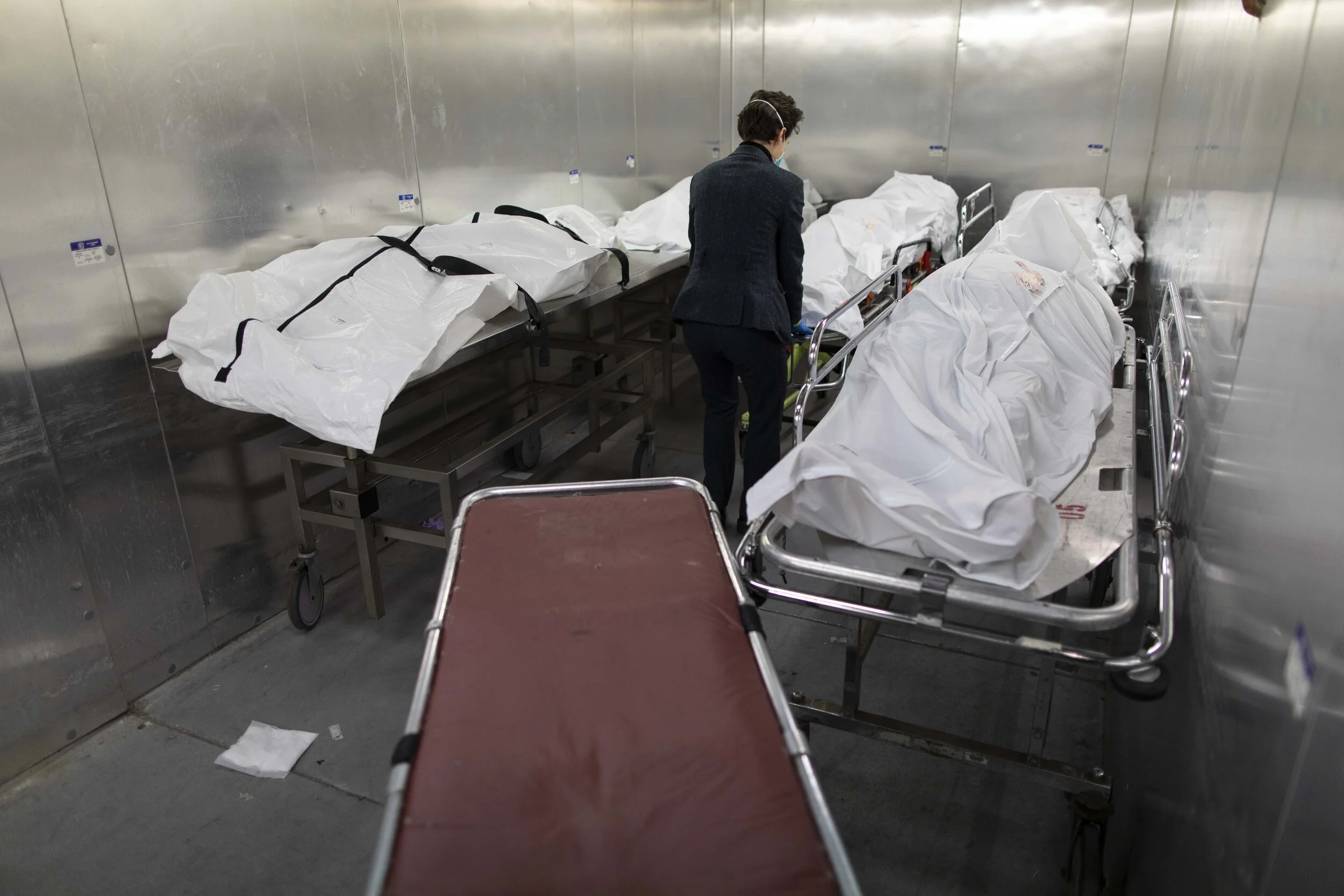
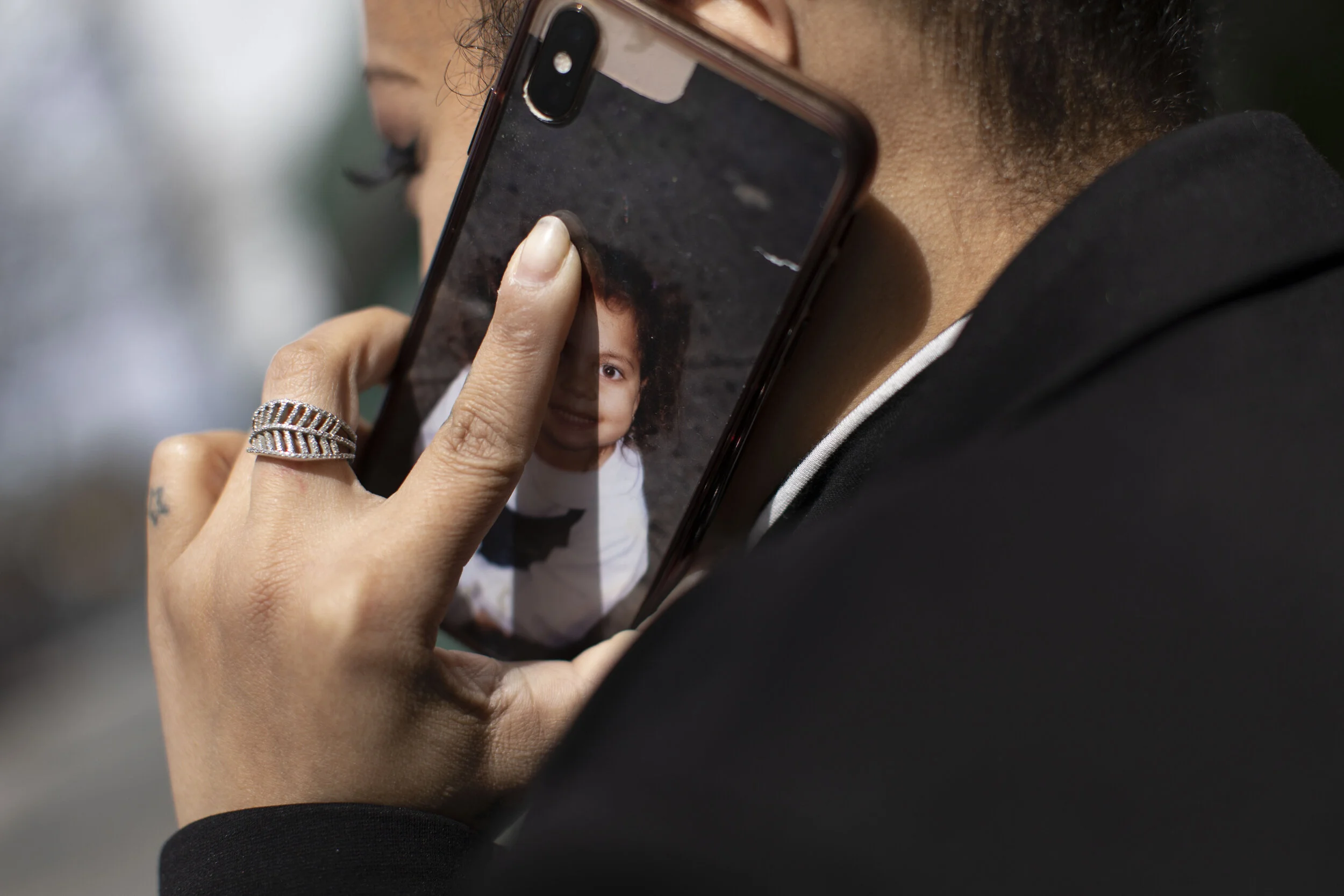
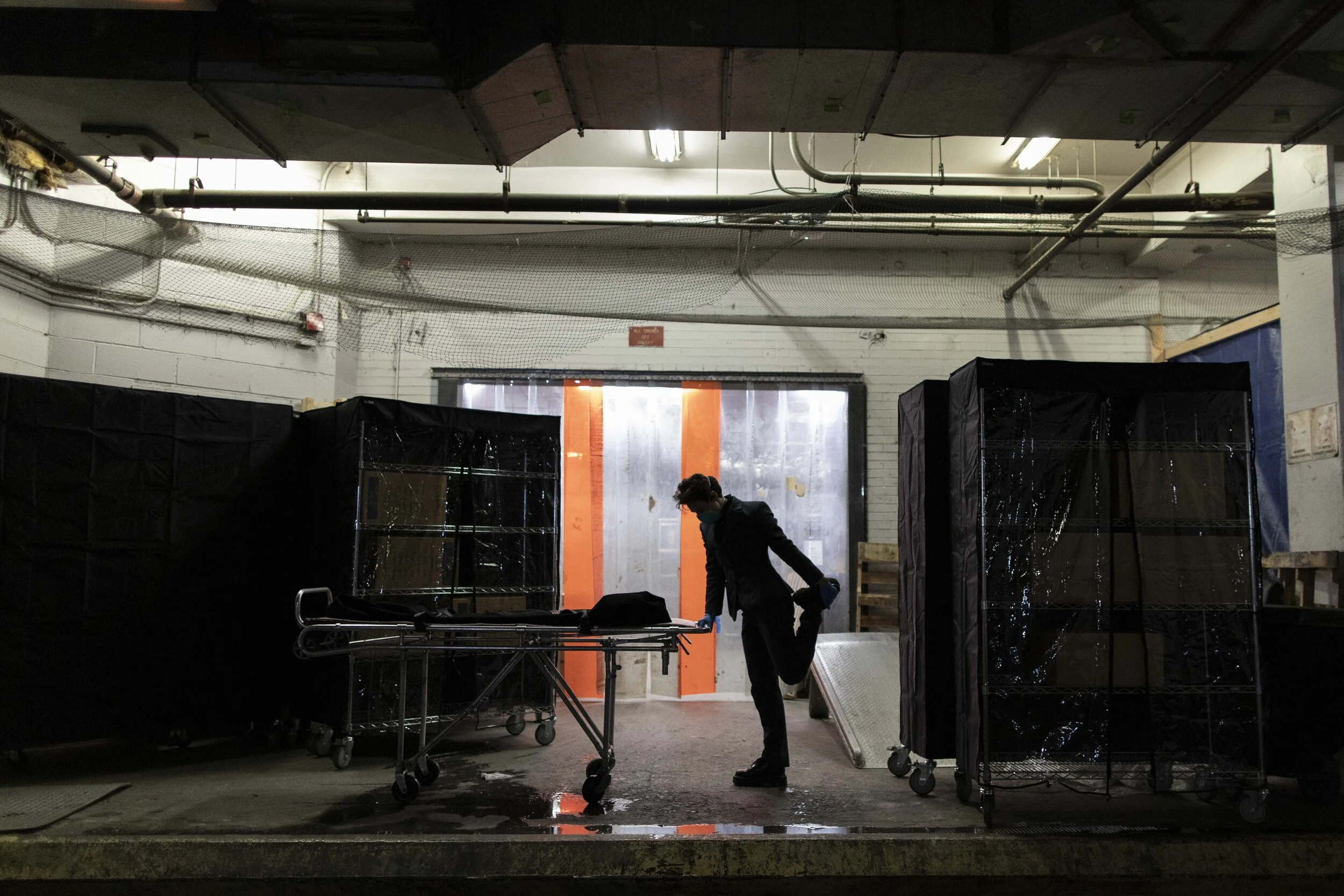
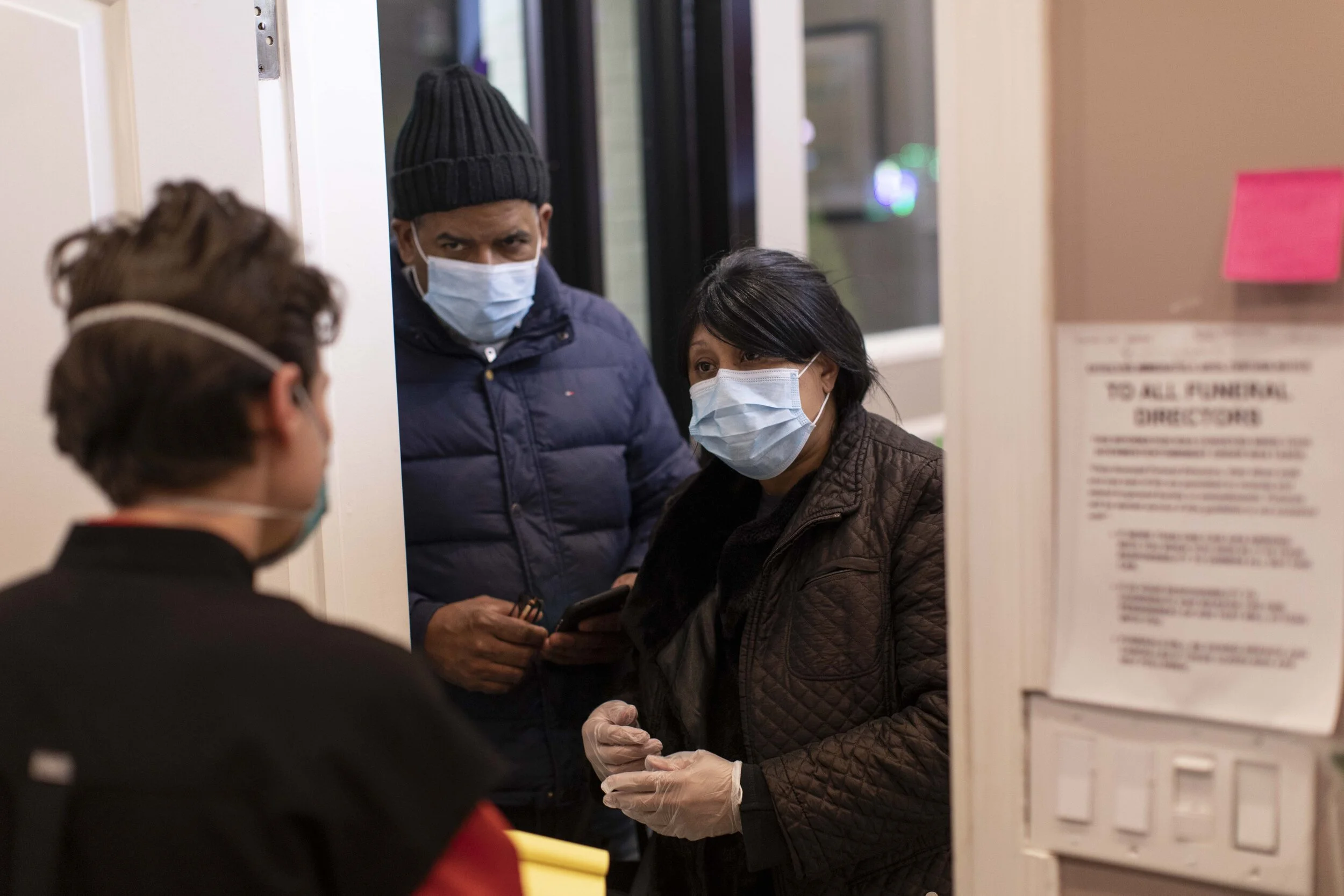
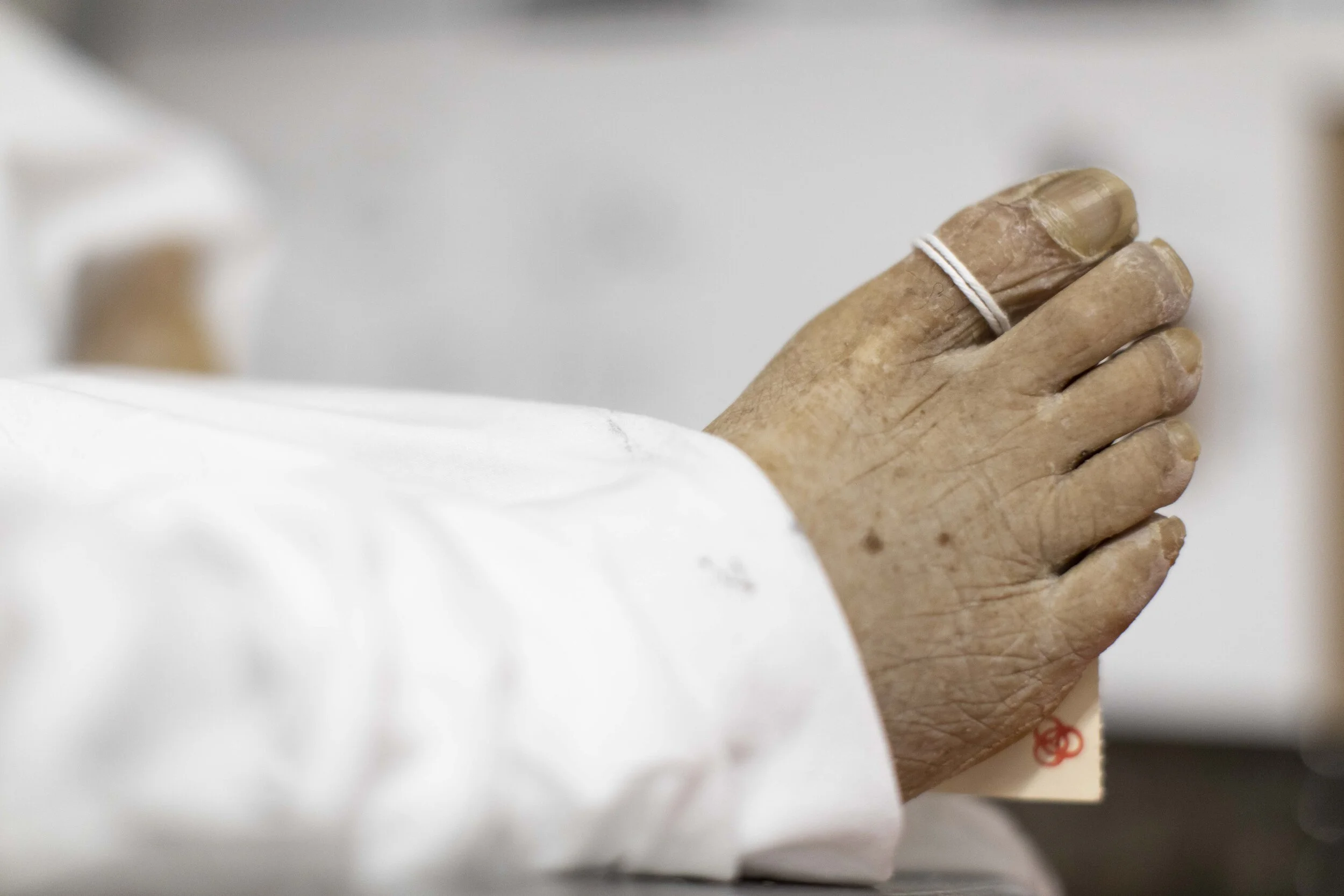
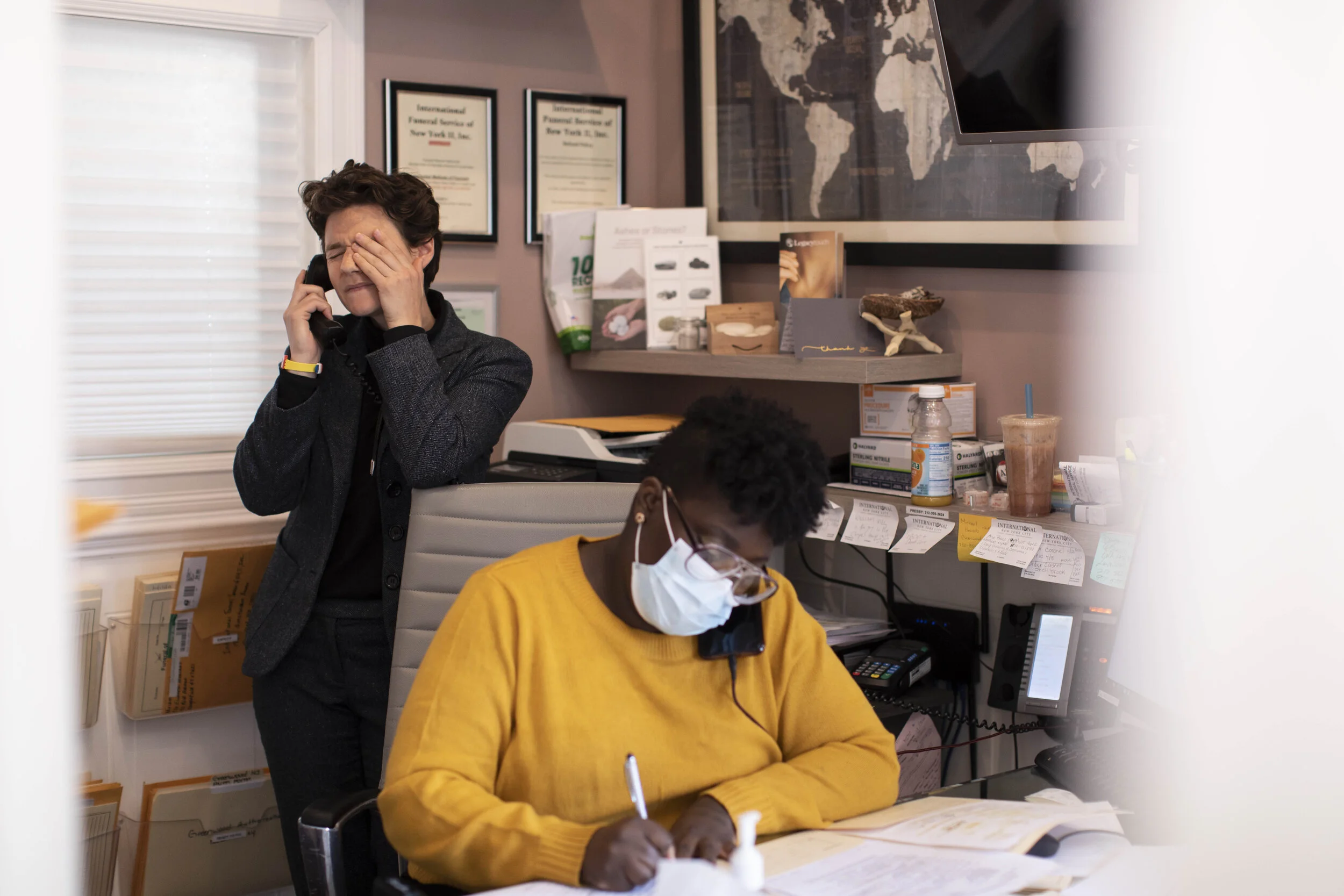
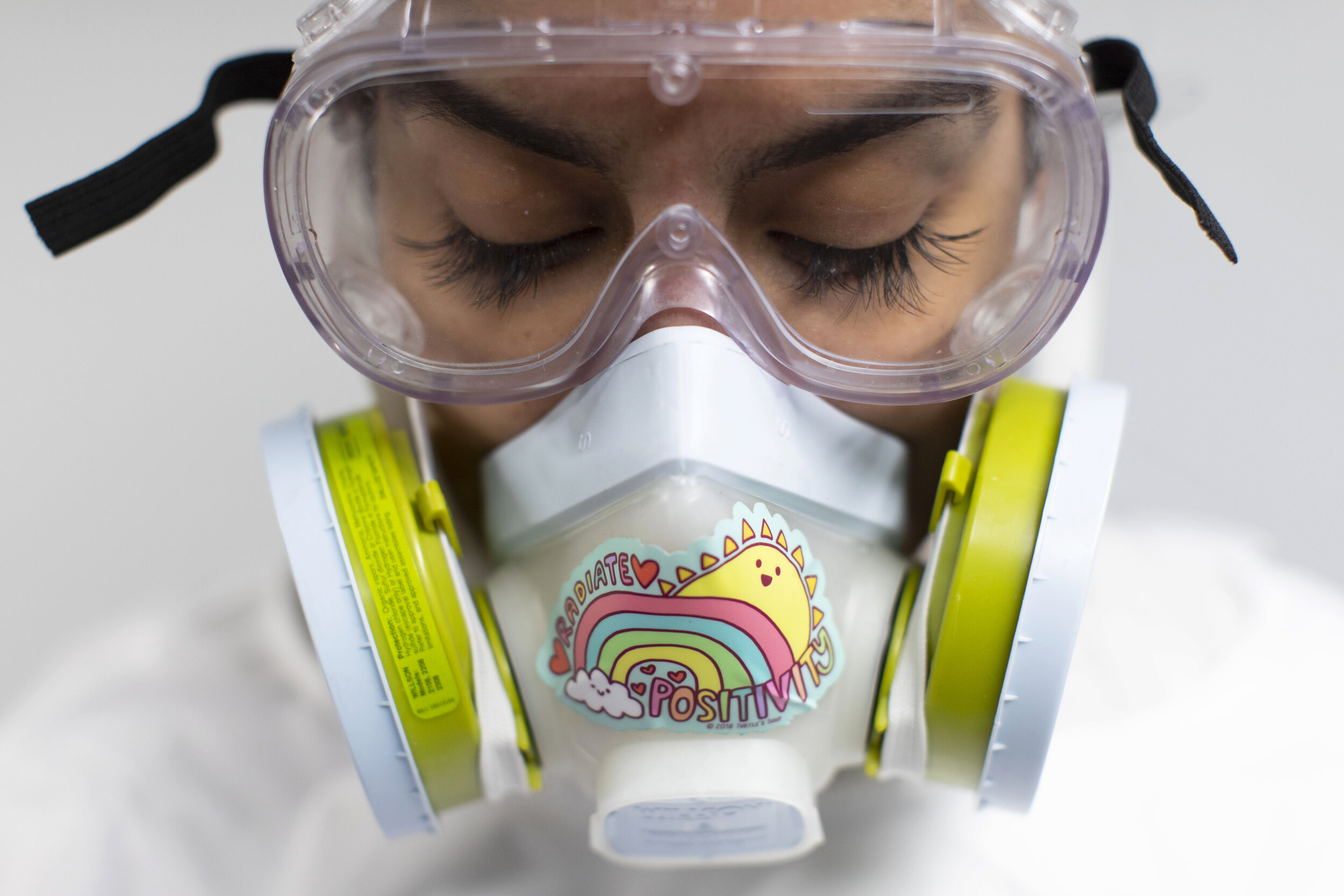
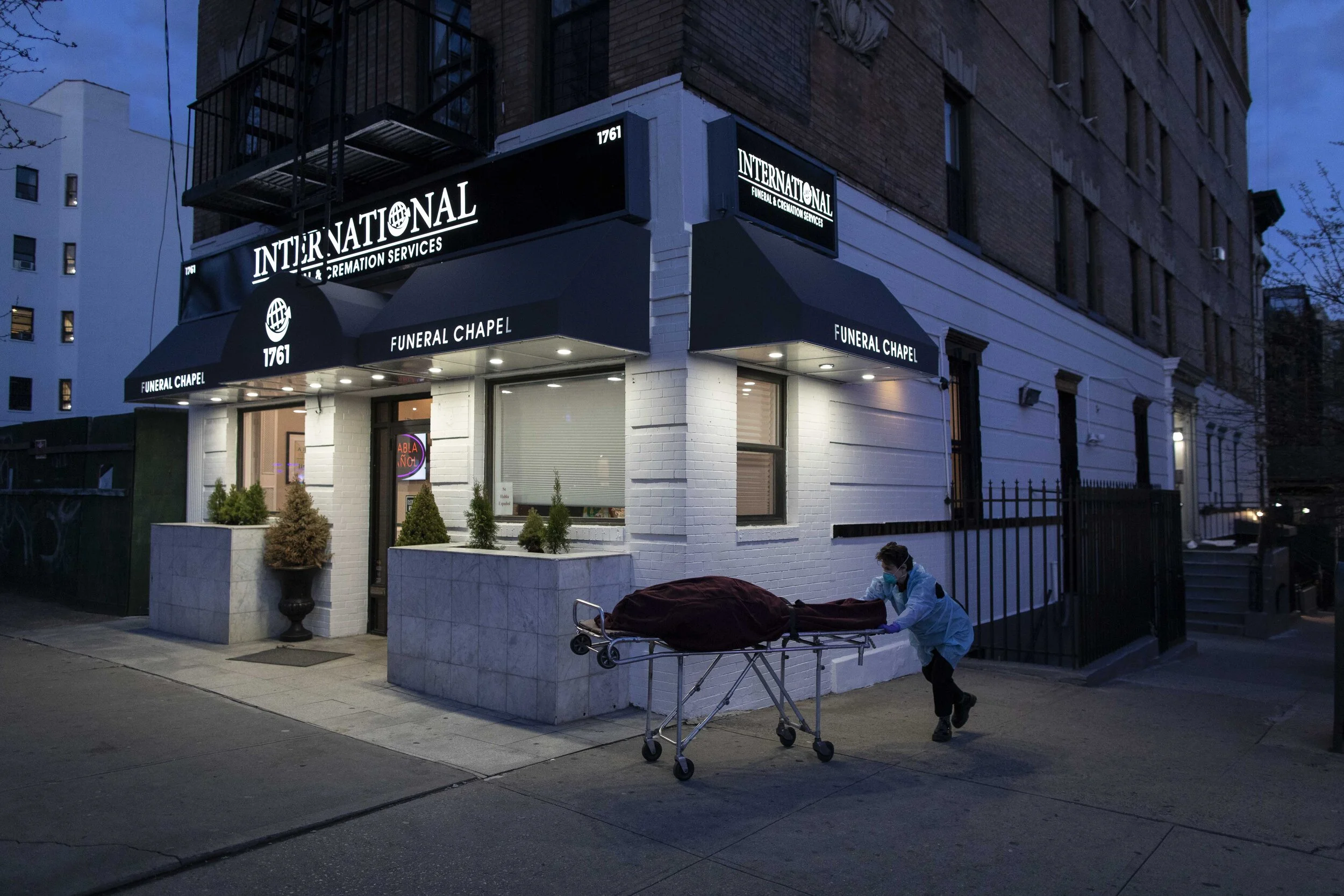

Lily Sage Weinrieb, Alisha Narvaez, Jenny Adames and Nicole Warring pose for a photo outside of International Funeral & Cremation Services, they funeral home they operate in Harlem, New York City.

Alisha Narvaez takes a phone call in in front of a bodies stacked in cremation boxes. The cremation boxes are a cost effective way to handle cremations, avoiding the expense of a casket.

Nicole Warring’s watch, a mother’s day gift, is seen as she transports a body outside of International Funeral & Cremation Services in Harlem.

Lily Sage Weinrieb drives through a cemetery in New Jersey to drop off two bodies for cremation. The waiting list for cremations stretched out to almost a month due to high demand.

Rosary beads are seen placed in the hand of a victim of coronavirus before their viewing service held at International Funeral Cremation Services in Harlem.

Lily Sage Weinrieb checks the identification of a body in the funeral home’s basement. With space in short supply, bodies shared stretchers top-to-tail.

Jenny Adames, left, applies make up to her aunt, a victim of COVID-19, before her viewing service as a screen plays a press conference held by U.S. President Donald Trump.

Jenny Adames sits in the chapel after a viewing service concludes. The funeral home is the only one in the city to offer viewing services in the time of coronavirus. Attendance is limited to 10 people at a time.

Bodies are laid in a corner as the basement, which typically holds around six bodies, held forty-eight during the peak of the pandemic.

Alisha Narvaez and Jenny Adames wheel their funeral home’s rental coffin up the sidewalk before a viewing service. The rental coffin is used as a cost saving method at viewing services for people who will then be cremated in cardboard cremation boxes.

Lily Sage attempts to position a body into a free space in the prep room, where embalmings take place.

Nicole Warring and Lily Sage Weinrieb pull a body from the funeral home’s van while parked on Amsterdam Avenue in Harlem.

Flower trimmings sit in the chapel after being cut from a casket spray, the floral arrangement that sits on top of a casket at a funeral.

A body bag is marked with COVID-19, ensuring extra precautions are taken when handling it. It was unknown if victims of coronavirus remained contagious after their death.

Jenny Adames takes a phone call on her cell phone that features an image of her daughter. Miss Adames insisted that her mother take care of her daughter for a period out of fear that she would contract the disease herself and pass it on to her.

Lily Sage Weinrieb stretches ahead of collecting a body from an Upper East Side hospital. Lily worked into the night making collections, sometimes clocking up 18 hour work days.

People arrive to search for a place for a family members body. Funeral homes around the city were at capacity forcing people to make the rounds in hope of finding a place for their loved ones bodies.

Lily Sage Weinrieb and Nicole Warring take calls in the office. The phones would ring non stop with people desperate to find a place for their loved ones as the death rate in the city peaked at around 800 per day.

Lily Sage Weinreib wheels a body from the basement to the chapel to prepare for a viewing service the next day.